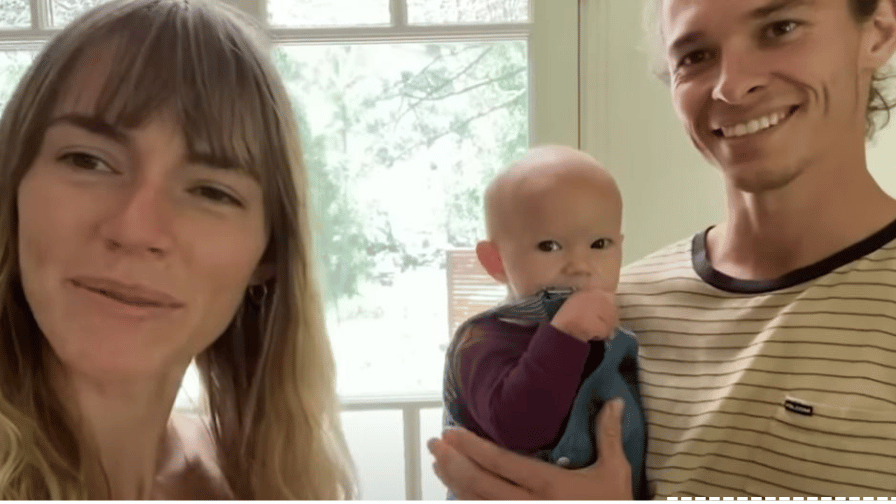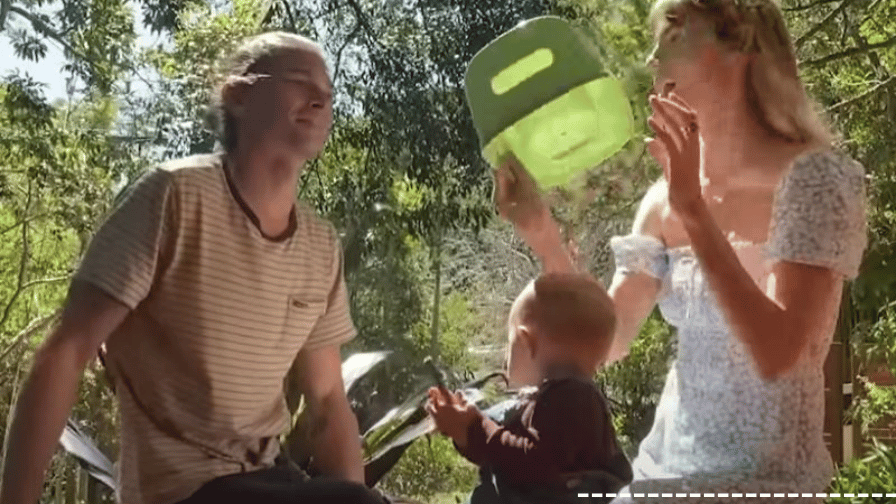Potty trained baby at two weeks. Potty schooling is a big milestone in a baby’s development, with the mother and father beginning the procedure at the age of 18 and 24 months. However, an Australian couple, Montana Lower and Tom Linwood amazed many through the absolute potty education of their baby lady, Blue, at just weeks old. Their achievement got here through an unconventional method called removal communique, which is gaining interest as an early, natural alternative to conventional potty schooling. In this newsletter, we’ll discover their adventure, how elimination conversation works, its blessings, and why it can be a feasible alternative for mothers and fathers looking for an advanced and extra intuitive technique to potty education.
What Is Elimination Communication?
Elimination verbal exchange (EC) is a technique where the mother and father observe their child’s cues or alerts indicating the need to apply the toilet. This approach requires dad and mom to be extraordinarily attuned to their baby’s behaviors, just as they could be whilst spotting hunger or tiredness. Instead of counting on diapers, parents respond promptly with the aid of taking the toddler to a bathroom or any other suitable spot. The concept behind this method is that infants, from a very young age, can speak their need to do away with waste. With careful observation and attentiveness, mother and father can assist their babies avoid soiling diapers, selling hygiene and comfort from an early age.
How Montana and Tom Achieved This
Montana and Tom, who stay in Byron Bay, Australia, to start with had reservations about elimination communication. It was regarded as a hard approach compared to traditional potty education, and they weren’t certain if it’d paintings with their newborn, Blue. However, their curiosity led them to give it a try, and they were astonished by the results. Within just one day, their daughter started out signaling her desires. The couple determined particular cues, along with certain facial expressions or body moves, which indicated that Blue needed to use the restroom. They replied directly each time, and over the subsequent days, they have been able to expect her needs with growing accuracy. By the time Blue turned into weeks antique, she no longer had to use diapers, as she had emerged as familiar with this early shape of potty education.
Why Elimination Communication Works
The success of removal verbal exchange depends in large part on how well dad and mom can take a look at and reply to their baby’s alerts. While it might sound daunting, this technique is primarily based on the concept that babies can do a lot more than we frequently supply them credit scores for, along with the potential to communicate their desires in methods beyond crying.
Here are a few reasons why removal conversation can be powerful:
1. Babies Are Attentive:
Contrary to popular perception, babies may be enormously aware of their environment and their bodily functions from a younger age. By looking at their cues, dad and mom can foster this focus.
2. Consistency Is Key:
Parents who always respond to their baby’s cues can strengthen the communication loop, helping the toddler recognize that their signals are being understood and acted upon.
3. Fosters a Strong Parent-Child Bond
Responding to a toddler’s needs promptly helps construct trust and knowledge among discernment and child, developing a more potent emotional bond.
The Benefits of Elimination Communication
Elimination verbal exchange offers numerous blessings, both for the baby and the mother and father. These encompass:
1. Improved Hygiene:
: Babies who aren’t left sitting in soiled diapers are less probably to revel in pain or diaper rashes. In precise, for child women, this technique can prevent prolonged touch with wet diapers that may cause inflammation or infections.
2. Cleaner and Healthier Environment:
: EC reduces the wide variety of diaper adjustments required, which means that fewer dirty diapers to do away with. It promotes a purifier environment and decreases waste.
3. Comfort for the Baby:
: Without having to sit in a moist or dirty diaper, toddlers tend to be greater comfortable and content with the material. This contributes to their usual well-being.
4. Cost Savings:
Diapers can be high-priced, especially over the long term. By getting rid of or substantially decreasing the want for diapers, parents can keep an enormous sum of money.
5. Early Independence for the Child:
Learning to sign their wishes early on can provide kids with an experience of achievement and independence. It additionally fosters vanity as the child feels understood and cared for.
The Challenges of Elimination Communication
While elimination communication gives many benefits, it also comes with challenges, especially at some point in the early stages:
1. High Level of Dedication:
Parents want to be completely committed to gazing and responding to their child’s indicators continually. This calls for lots of attention and staying power, in particular inside the starting whilst accidents are extra common.
2. Messiness:
As with any learning technique, there can be accidents. Parents ought to be organized for this and be inclined to smooth up often whilst they and their child get the dangle of it.
3. Time-Consuming:
Elimination conversation may be time-intensive, particularly when in comparison to without a doubt the use of diapers. Parents should make a conscious attempt to prioritize this technique, which might not be viable for all and sundry.
Conclusion: An Alternative Worth Considering
Montana and Tom’s experience with elimination communication suggests that with the right degree of dedication and patience, potty training can start tons in advance than the standard 18-24 month range. While it is no longer suitable for each family, removal communication gives a herbal and rewarding opportunity for those looking to avoid diapers and sell the early independence of their child. For parents inquisitive about a technique that calls for attentiveness but offers the ability for outstanding outcomes, elimination communique will be a possible alternative. As Montana and Tom’s story demonstrates, with patience and endurance, even a -week-old baby can start to communicate their wishes efficiently.
Source :







